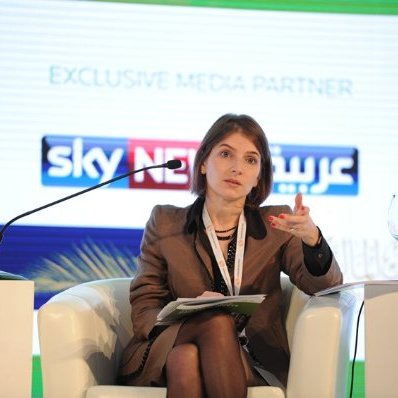In a nutshell
Sovereign investors, including SWFs, are the largest institutional investors in most Arab stock exchanges, holding over 40% of the total market capitalisation in the region.
Middle Eastern SWFs, as owners of full and partial state-owned enterprises, are often active shareholders; yet they are not using their influence to improve governance or support sustainability across the board.
The only way SWFs can safeguard wealth for future generations – fulfilling the purpose for which they were established – is to participate meaningfully in corporate governance.
Over the last 20 years, as strong hydrocarbon revenues have enabled Middle Eastern SWFs to proliferate and grow, a variety of labels have been created to categorize them, including stabilization funds, future generation funds, and investment funds. But most sovereign investors – which also include sizeable social security and pension funds, such as Saudi Arabia’s General Organization for Social Insurance and Public Pensions Agency – belie clear-cut labels.
Few Middle Eastern SWFs are pure financial investors. Because many of them held stakes in state-owned enterprises before becoming financial investors, their holdings tend to be diverse, and often include those same SOEs, as well as real estate and equity stakes in listed and unlisted companies. These holdings also include a growing volume of assets in the developed economies – a reality that has raised eyebrows in Europe and the United States.
To allay concerns over SWFs’ potential political considerations, the International Monetary Fund convened 26 SWFs – over 30% of them from the Middle East – in 2008 to develop the Santiago Principles. The goal was to promote transparent and sound governance of SWFs, ensure that they adequately account for investment risk, and help to maintain global financial stability.
But, since then, the situation has changed substantially. In the aftermath of the 2008 global financial crisis, investment capital became far scarcer and efforts to ensure SWF transparency and accountability gave way to competition for their capital. Far from a source of apprehension, SWFs have become beneficiaries of fiscal incentives designed to encourage investment in Europe.
At the same time, however, Middle Eastern SWFs have confronted new constraints on their international purchasing power, owing to fiscal austerity at home, induced by falling hydrocarbon prices. Domestically, governments have largely abandoned their efforts to divide sovereign holdings into multiple “pockets” that reflected the funds’ diverse investment objectives and wider political considerations.
The June 2016 announcement of a merger between Abu Dhabi’s International Petroleum Investment Company and Mubadala Development Company – two entities that had quite different objectives and strategies – heralded another change. Consolidation of sovereign assets became the name of the game. Saudi Arabia’s Public Investment Fund (PIF), for example, is now expected to become an almost $2 trillion investment vehicle, with holdings including SOEs and financial investments.
Even prior to this, SWFs in the MENA region held substantial assets in public equity markets at home and abroad. According to a recent analysis by GOVERN (of which I am Managing Director), the state is a significant shareholder in 89 of the region’s 100 largest listed firms – and a majority shareholder in 34. Sovereign investors, including SWFs, are the largest institutional investors in most Arab stock exchanges, holding over 40% of the total market capitalization in the region.
As SWFs consolidate their assets, their attention will likely be focused on domestic exchanges. After all, any further sales of state-owned assets will be conducted through public equity markets, owing to the interest of the region’s policymakers in developing local capital markets and improving the transparency of the privatization process. In times of crisis, SWFs could also be mobilized to inject assets into domestic markets to restore market stability. Tellingly, the mandate of the Turkish sovereign fund includes deepening the domestic capital market.
The time has come to consider more carefully the impact of SWFs on companies’ governance and performance. That issue was not addressed in detail by the Santiago Principles, which focused on SWF transparency. Nor has it been adequately addressed by domestic capital-market regulators, who have focused on developing rules and regulations for listed companies, not the investors who might act as their owners.
Middle Eastern SWFs, as owners of full and partial SOEs, are often active shareholders – and sometimes even manage companies directly, side-stepping boards in the name of greater decision-making efficiency. Yet they are not using their influence to improve governance or support sustainability across the board. As financial investors, SWFs are not active; many do not even vote their shares. This contrasts sharply with the approach of their global peers like Norway’s Norges Bank, which in recent years has fought poorly governed firms and divested from polluting industries like coal.
Middle Eastern and North African SWFs’ reluctance to engage in the governance of their portfolio investments abroad may be a legacy of the “investment protectionism” of the Santiago Principles days. But, in the world of today, investors need to change their ways, engaging more effectively with the companies, both at home and abroad. Otherwise, they may face serious financial and reputational risks, exemplified in QIA’s losses following Volkswagen’s 2015 emissions scandal. The importance of engagement is also highlighted by the terms of recent acquisitions, such as PIF’s purchase of a stake in Uber, which gave it the right to nominate a board member to represent its interests.
It is with regard to domestic firms that Middle Eastern SWFs have the most urgent responsibility, especially considering that most other institutional investors in these markets are also inactive when it comes to corporate governance. As some of largest public equity investors in the region, SWFs should be encouraged to take more responsibility for their investments. Indeed, the only way SWFs can safeguard wealth for future generations – fulfilling the purpose for which they were established – is to participate meaningfully in corporate governance.
This article was originally published by Project Syndicate. Read the original article.


